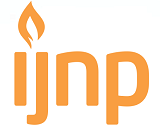Determinants of Depression Levels in Breast Cancer Survivors
DOI:
https://doi.org/10.18196/ijnp.v8i1.20695Keywords:
breast cancer, depression levels, determinantsAbstract
Background: Breast cancer is one type of malignancy in breast tissue that is experienced by many women throughout the world, including in Indonesia. Breast cancer shows high morbidity and mortality rates. The East Java Provincial Health Office noted that breast cancer cases have increased from year to year. The conditions and the process of cancer treatment can lead to psychological problems, including depression.
Objective: This research aims to analyze the determinant factors that influence depression levels in breast cancer survivors.
Methods: This study utilized the correlation method. The study was conducted in East Java. 158 respondents were selected using a purposive sampling technique. The instrument used in this research was a questionnaire that has been tested for validity and reliability. The data collection method used was face-to-face. Data analysis was carried out using SPSS software, including cross-tabulation and multivariate linear regression test with alpha 0.05.
Results: Research findings show that marital status (p=0.021) is related to social support (p=0.002), physical condition (p=0.003), and the level of depression, but there was no relationship between age (p=0.281), the level of education (p=0.752) and the length of illness (p=0.265) and depression levels in breast cancer survivors.
Conclusion: It is concluded that the determinants of factors that influence the level of depression are marital status, social support, and physical condition in survivors of breast cancer. Breast cancer survivors are expected to maintain their enthusiasm and not give up to avoid depression, which can reduce their health status.
References
Beadle, B. M., Woodward, W. A., & Buchholz, T. A. (2011). The Impact of Age on Outcome in Early-Stage Breast Cancer. Seminars in Radiation Oncology, 21(1), 26–34. https://doi.org/10.1016/j.semradonc.2010.09.001
Bray, F., Laversanne, M., Sung, H., Ferlay, J., Siegel, R. L., Soerjomataram, I., & Jemal, A. (2024). Global cancer statistics 2022: GLOBOCAN estimates of incidence and mortality worldwide for 36 cancers in 185 countries. CA: A Cancer Journal for Clinicians, 74(3), 229–263. https://doi.org/10.3322/caac.21834
CNN Indonesia. (2024). Waspada, WHO Sebut Penderita Kanker Melonjak 77 Persen pada 2050. Jakarta: CNN INdonesia. Retrieved from https://www.cnnindonesia.com/gaya-hidup/20240203171426-255-1058133/waspada-who-sebut-penderita-kanker-melonjak-77-persen-pada-2050
Culbertson, M. G., Bennett, K., Kelly, C. M., Sharp, L., & Cahir, C. (2020). The psychosocial determinants of quality of life in breast cancer survivors: A scoping review. BMC Cancer, 20(1). https://doi.org/10.1186/s12885-020-07389-w
Division of Mental Health and Abuse, Prevention of Substance Organization, W. H. 1998. (2012). WHOQOL User Manual. Psychological Medicine, 1998, (WHO/HIS/HSI Rez 2012.03). Retrieved from https://iris.who.int/bitstream/handle/10665/77932/WHO_HIS_HSI_Rev.2012.03_eng.pdf?sequence=1
Fresno-Alba, S., Denche-Zamorano, Á., Pastor-Cisneros, R., Pereira-Payo, D., Franco-García, J. M., & Jiménez-Castuera, R. (2023). Breast cancer and physical activity: A bibliometric analysis. Frontiers in Oncology, 12. https://doi.org/10.3389/fonc.2022.1051482
Friedman, M. M., & Vicky R. Bowden, E. 0. J. (2010). Buku Ajar Keperawatan Keluarga: Riset, Teori, & Praktik= Family Nursing: Researh, Theory and practice. Jakarta: EGC.
Hanh, T. T. H., Jitpanya, C., & Preechawong, S. (2022). Non-Pharmacological Interventions On Anxiety Among Colorectal Cancer: A Systematic Review. Proceeding B-ICON, 1(1), 170–181. https://doi.org/10.33088/bicon.v1i1.31
Husni, M., Romadoni, S., & Rukiyati, D. (2012). Hubungan Dukungan Keluarga Dengan Kualitas Hidup Pasien Kanker Payudara Di Instalasi Rawat Inap Bedah Rsup Dr. Mohammad Hoesin Palembang Tahun 2012. Retrieved from https://ejournal.unsri.ac.id/index.php/jk_sriwijaya/article/view/2334/1197 1
Jatim, D. P., Dinas, K., & Jawa, K. (2020). Serviks dan Payudara , Dominasi Kanker di Jawa Timur. Retrieved from https://kominfo.jatimprov.go.id/read/umum/serviks-dan-payudara-dominasi-kanker-di-jawa-timur-
Khanuun, L., & Makiyah, S. N. N. (2021). Social Support To Women With Breast Cancer Undergoing Treatment. Media Keperawatan Indonesia, 4(3), 247. https://doi.org/10.26714/mki.4.3.2021.247-255
Maharani, A. D. S., Rejeki, D. S. S., & Wijayanti, S. P. M. (2023). Factors Affecting the Quality of Life of Breast Cancer Patients. Disease Prevention and Public Health Journal, 17(2), 224–230. https://doi.org/10.12928/dpphj.v17i2.8705
Mokhtari-Hessari, P., & Montazeri, A. (2020). Health-related quality of life in breast cancer patients: review of reviews from 2008 to 2018. Health and Quality of Life Outcomes, 18(1). https://doi.org/10.1186/s12955-020-01591-x
Niedzwiedz, M. F. & C. L. (2021). Associations between multimorbidity and depression among breast cancer survivors within the UK Biobank cohort: a cross-sectional study. BMC Cancer. Retrieved from https://bmccancer.biomedcentral.com/articles/10.1186/s12885-021-08409-z
Park, J.-H., Jung, Y. S., Kim, J. Y., & Bae, S. H. (2021). Determinants of quality of life in women immediately following the completion of primary treatment of breast cancer: A cross-sectional study. PLOS ONE, 16(10), e0258447. https://doi.org/10.1371/journal.pone.0258447
Pilevarzadeh, M., Amirshahi, M., Afsargharehbagh, R., Rafiemanesh, H., Hashemi, S. M., & Balouchi, A. (2019). Global prevalence of depression among breast cancer patients: a systematic review and meta-analysis. Breast Cancer Research and Treatment, 176(3), 519–533. https://doi.org/10.1007/s10549-019-05271-3
Regnard, C., & Kindlen, M. (2019). Chemotherapy: side effects. Supportive and Palliative Care in Cancer, 39–41. https://doi.org/10.1201/9781315378596-13
RI, D. Y. K. (2022). Mitos seputar kemoterapi. Jakarta: Direktorat Jendral Pelayanan Kesehatan Kemenkes RI. Retrieved from https://yankes.kemkes.go.id/view_artikel/1366/mitos-seputar-kemoterapi
Salem, H., & Daher-Nashif, S. (2020). Psychosocial aspects of female breast cancer in the middle east and North Africa. International Journal of Environmental Research and Public Health, 17(18), 1–16. https://doi.org/10.3390/ijerph17186802
Sugiyono. (2010). Statistika untuk Penelitian. Bandung: Alfabeta.
Sumartiningtyas, H. K. (2021). Kanker Payudara Paling Banyak Didiagnosis di Dunia (pp. 2020–2021). pp. 2020–2021. Jakarta: Kompas.com.
Syarief, I. S. (2021). 19 , 3 Juta Orang di Dunia Menderita Kanker , Paling Banyak Kanker Payudara (pp. 4–8). pp. 4–8. Surabaya: suarasurabaya. Retrieved from https://www.suarasurabaya.net/kelanakota/2021/193-juta-orang-di-dunia-menderita-kanker-paling-banyak-kanker-payudara/
Wicaksana, Y. S. W. (2023). Kanker Payudara Masih Mendominasi, Ini Kata Dokter Soal Penyebabnya. Malang: Radar Malang. Retrieved from https://radarmalang.jawapos.com/kesehatan/811090660/kanker-payudara-masih-mendominasi-ini-kata-dokter-soal-penyebabnya
Widiyono, Setiyarini, S., & Effendy, C. (2018). Tingkat Depresi pada Pasien Kanker di RSUP Dr. Sardjito, Yogyakarta, dan RSUD Prof. Dr. Margono Soekarjo, Purwokerto: Pilot Study. Indonesian Journal of Cancer, 11(4), 171. https://doi.org/10.33371/ijoc.v11i4.535
Yuliana, Y., Mustikasari, M., & Fernandes, F. (2020). Hubungan Dukungan Sosial dengan Kecemasan dan Depresi pada Pasien Kanker Payudara di RSU Raden Mattaher Jambi. Jurnal Ilmiah Universitas Batanghari Jambi, 20(1), 1. https://doi.org/10.33087/jiubj.v20i1.786
Yuliati, L. D., Fitriani, R. D., & Maliya, A. (2020). Hubungan Dukungan Keluarga dengan Depresi pada Pasien Kanker Payudara. Prosiding Seminar Nasioanal Keperawatan Universitas Muhammadiyah Surakarta, 56–61.
Zhai, Z., Zhang, F., Zheng, Y., Zhou, L., Tian, T., Lin, S., Deng, Y., Xu, P., Hao, Q., Li, N., Yang, P., Li, H., & Dai, Z. (2019). Effects of marital status on breast cancer survival by age, race, and hormone receptor status: A population‐based Study. Cancer Medicine, 8(10), 4906–4917. Portico. https://doi.org/10.1002/cam4.2352
Downloads
Additional Files
Published
Issue
Section
License
License
Articles published in the IJNP (Indonesian Journal of Nursing Practices) are licensed under a Attribution 4.0 International (CC BY 4.0) license. You are free to:
- Share — copy and redistribute the material in any medium or format.
- Adapt — remix, transform, and build upon the material for any purpose, even commercially.
This license is acceptable for Free Cultural Works. The licensor cannot revoke these freedoms as long as you follow the license terms. Under the following terms:
Attribution — You must give appropriate credit, provide a link to the license, and indicate if changes were made. You may do so in any reasonable manner, but not in any way that suggests the licensor endorses you or your use.
- No additional restrictions — You may not apply legal terms or technological measures that legally restrict others from doing anything the license permits.
Copyright
Authors who publish with IJNP (Indonesian Journal of Nursing Practices) agree to the following terms:
- Authors retain copyright and grant IJNP (Indonesian Journal of Nursing Practices) the right of first publication with the work simultaneously licensed under an Attribution 4.0 International (CC BY 4.0) that allows others to remix, adapt and build upon the work with an acknowledgment of the work's authorship and of the initial publication in IJNP (Indonesian Journal of Nursing Practices).
- Authors are permitted to copy and redistribute the journal's published version of the work (e.g., post it to an institutional repository or publish it in a book), with an acknowledgment of its initial publication in IJNP (Indonesian Journal of Nursing Practices).














